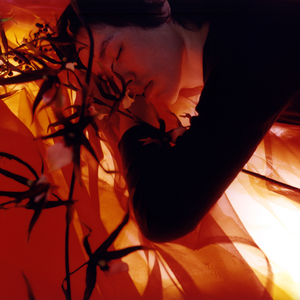
| Trackimage | Playbut | Trackname | Playbut | Trackname |
|---|---|---|---|---|
| 24638862 | Play | Ballet | 02:40 Tools | |
| 24638860 | Play | Shousetsu | 03:49 Tools | |
| 24638861 | Play | Suna | 04:07 Tools | |
| 24638863 | Play | Opening | 01:10 Tools | |
| 24638867 | Play | Toh-Koh | 02:12 Tools | |
| 24638865 | Play | Shunpoudoh | 03:43 Tools | |
| 24638864 | Play | Photo Dynasmo | 04:04 Tools | |
| 24638866 | Play | Mask | 03:05 Tools | |
| 24638869 | Play | Thousand (featuring Carl Stone) | 03:08 Tools | |
| 24638868 | Play | Usunibi (featuring Carl Stone) | 04:25 Tools | |
| 24638874 | Play | Thousand (f/ Carl Stone) | 03:07 Tools | |
| 24638875 | Play | Usunibi (f/ Carl Stone) | 04:24 Tools | |
| 24638870 | Play | Thousand (feat.Carl Stone) | 03:08 Tools | |
| 24638872 | Play | Thousand | 03:08 Tools | |
| 24638873 | Play | Usunibi (feat. Carl Stone) | 04:23 Tools | |
| 24638871 | Play | Usunibi | 04:24 Tools | |
| 24638877 | Play | Happy End | 03:32 Tools | |
| 62294125 | Play | Bone China | 03:07 Tools | |
| 24638878 | Play | Thousand (featuring Carl Stone | 03:08 Tools | |
| 62294126 | Play | Sequence For Tsuguharu Fujita | 03:07 Tools | |
| 62294127 | Play | Prologue | 03:07 Tools | |
| 62294128 | Play | A Ribbon Knot | 03:07 Tools | |
| 62294129 | Play | Pointillism | 03:07 Tools | |
| 62294130 | Play | Miuccia Lyric | 03:07 Tools | |
| 62294131 | Play | Drum | 03:07 Tools | |
| 62294132 | Play | In Women | 03:07 Tools | |
| 62294133 | Play | Egyptology | 03:07 Tools | |
| 24638876 | Play | Thousand (feat. Carl Stone) | 03:07 Tools | |
| 62294134 | Play | To "The September 13th" | 03:07 Tools | |
| 87882174 | Play | Way Home | 03:07 Tools | |
| 62294135 | Play | Thousand (feat Carl Stone) | 03:07 Tools | |
| 62294136 | Play | Usunibi (feat Carl Stone) | 03:07 Tools | |
| 62294137 | Play | BalletDansxRemix | 03:07 Tools | |
| 62294139 | Play | Born China | 04:24 Tools | |
| 24638880 | Play | Thousand (ft. Carl Stone) | 03:07 Tools | |
| 24638884 | Play | Usunibi (ft. Carl Stone) | 04:24 Tools | |
| 62294138 | Play | Usunibi ft. Carl Stone | 04:24 Tools | |
| 62294142 | Play | To “The September 13th” | 04:24 Tools | |
| 62294140 | Play | Thousand ft. Carl Stone | 04:24 Tools | |
| 62294141 | Play | Ballet (Dansx Remix) | 04:24 Tools | |
| 62294143 | Play | Surrey | 04:24 Tools | |
| 62294144 | Play | Thousand [feat. Carl Stone] | 04:24 Tools |

-
- 130,855
- plays
-
- 10,550
- listners
-
- 130855
- top track count
Hirohito Ihara, who founded radicalfashion in Kobe, Japan, speaks of the subconscious influence of his surroundings on his work. He links the sea with his “liking for some kind of nostalgia”. He confesses that he doesn’t know with certainty how a life in Kobe, on the sea, and this nostalgia are connected but that “...no one can escape the subconscious influence of their surroundings and my liking for some kind of nostalgia seems to me to have something to do with that.” In the purest spirit of abstract expression, Hirohito allows the listeners to experience in his debut full-length, Odori, their own emotions without any guiding elements. Of his piano work, he says, “I have come to like gentle notes created by striking piano keys softly, rather than clear-cut, strong key touches.” Again, he avoids the “clear-cut”. He confesses to a regional influence on his music but consciously tempers it. “I don’t think my music should have too much localness because I want many people around the world to like my music,” he says. Hirohito began playing piano at a young age. As his play matured he “became conscious of the beauty of sounds as a melody.” This awareness was illustrated for him by M. Ravel’s “Piano Concerto in G”(1929-1931). “Its beauty deeply impressed me,” he comments. Its interesting to note that Ravel is considered one of the great French musical Impressionists. That movement was noted for it’s focus on mood and atmosphere and its use of dissonance and the whole tone scale to create hazy, dreamy, effects. Odori, in radicalfashion's twenty-first century language, moves as boldly and coherently apart from the mainstream as Ravel’s “Piano Concerto in G” did in its time. The richly textured and strikingly original Odori is a composite of contrasting elements. In all senses it is new, fresh, and distinctive yet it sounds familiar. It’s a fascinating sound-world where elegant, sophisticated piano compositions and highbrow experimentalism with uncommon scales collide with playful, modern electronics. It’s a lethargic sonata, free but structured, composed but improvisational. Read more on Last.fm. User-contributed text is available under the Creative Commons By-SA License; additional terms may apply.